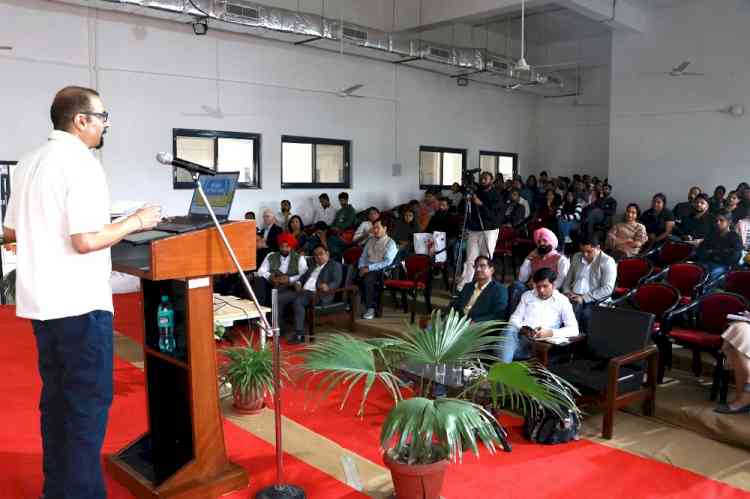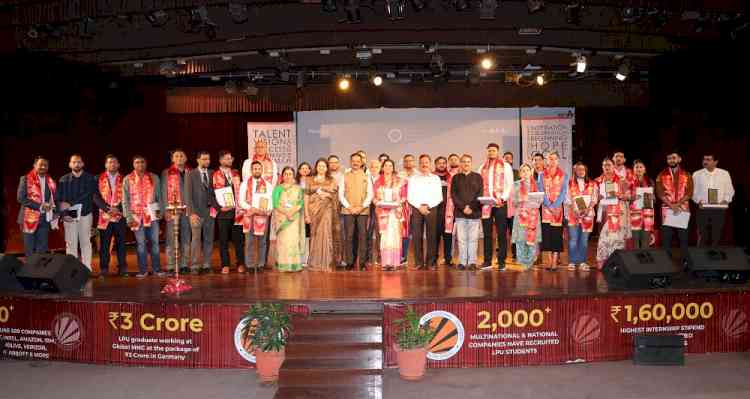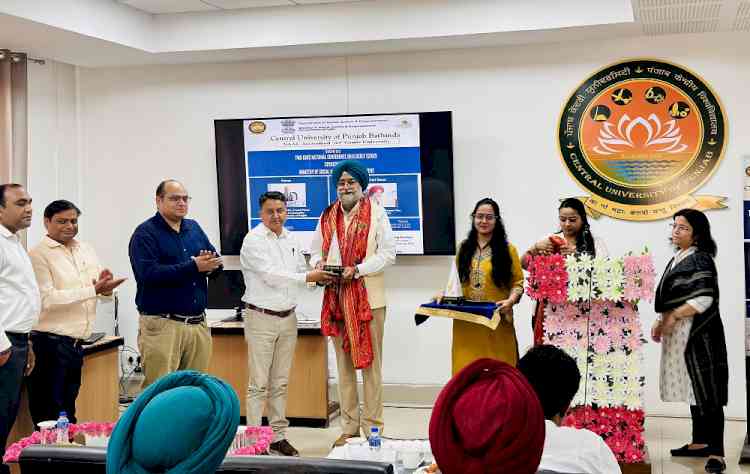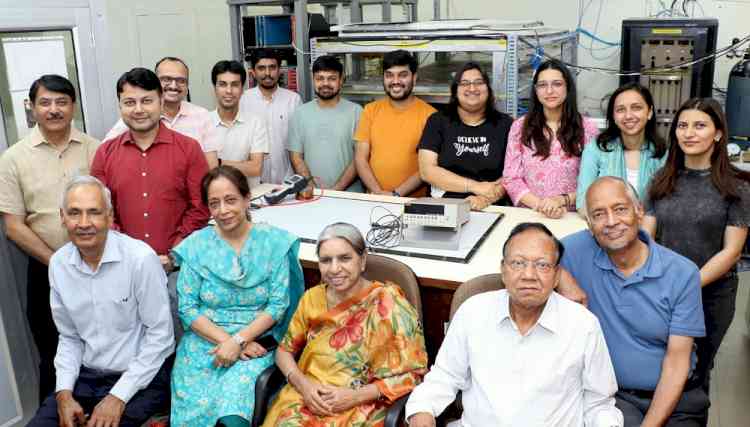CU Punjab Hosts Lecture on "New Media in the Post-Truth Era" by Fulbright-Nehru Fellow Dr. Parakh Hoon
The Department of Mass Communication and Media Studies at the Central University of Punjab (CUP) organized a special lecture on “New Media in the Post-Truth Era”. Delivered by Dr. Parakh Hoon, a Fulbright-Nehru Fellow and faculty member at South Puget Sound Community College, Olympia, USA.

Bathinda, November 20, 2024: The Department of Mass Communication and Media Studies at the Central University of Punjab (CUP) organized a special lecture on “New Media in the Post-Truth Era”. Delivered by Dr. Parakh Hoon, a Fulbright-Nehru Fellow and faculty member at South Puget Sound Community College, Olympia, USA. The lecture was held under the patronage of Vice-Chancellor Prof. Raghavendra P. Tiwari. The session explored critical issues surrounding democracy, trust, and the rapidly evolving media landscape.
Dr. Hoon emphasized that trust and factual accuracy are vital for the functioning of democracies as they enable informed decision-making, civic engagement, and accountability. He highlighted the growing concern over declining trust in institutions and the shift towards emotional appeals rather than facts, which has significantly impacted democratic processes. He noted that this trend is exacerbated by the rise of new media platforms like Facebook and WhatsApp, particularly in middle-income countries. While these platforms democratize access to information, they also amplify misinformation, deepen societal polarization, and undermine democratic institutions.
During the lecture, Dr. Hoon explained the fundamental differences between traditional and new media. Traditional media relies on professional journalism and editorial oversight, while new media thrives on user-generated content and interactive platforms. This shift towards new media has transformed audiences into "prosumers," active participants who engage with, curate, and disseminate content. While this change empowers individuals, it also increases their vulnerability to fake news and unverified narratives. He discussed various types of misinformation, including satire, misleading content, impostor sources, and manipulated data, and raised concerns over emerging threats such as deepfakes—AI-generated content that misleads audiences and complicates fact-checking efforts.
To combat these challenges of fake news, misinformation and disinformation, Dr. Hoon proposed solutions such as diversifying media consumption, promoting media literacy, and supporting grassroots fact-checking initiatives to enhance public trust. He also highlighted the importance of using AI-powered tools like fact-checking chatbots to address misinformation more effectively. Dr. Hoon urged media platforms to prioritize accountability and inclusivity over sensationalism driven by ad revenue, stressing the need for ethical reporting to counter the negative effects of polarization and misinformation.
The programme commenced with a welcome address by Dr. Rubal Kanozia, Head of the Department of Mass Communication. Towards the end, Dr. Bhav Nath Pandey, Dean School of Information and Communication Studies. expressed gratitude to Dr. Hoon for his insightful presentation. The event was attended by distinguished faculty members, including Prof. Bawa Singh, Prof. Shahila Zafar, Dr. Kinshuk Pathak, Dr. Paramveer Singh, Dr. Chhavi Garg, Dr. Mahesh Meena, and Dr. Aleem Khan. Students and research scholars from various departments also participated enthusiastically, making the event a significant milestone in fostering critical discussions on the challenges and responsibilities of media in the post-truth era.


 City Air News
City Air News 








